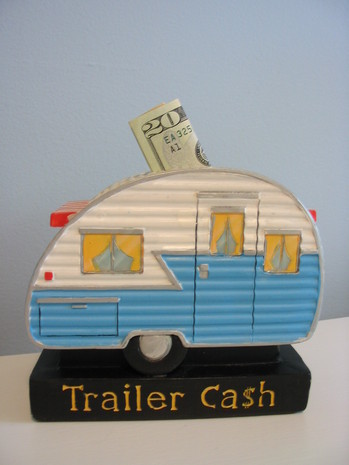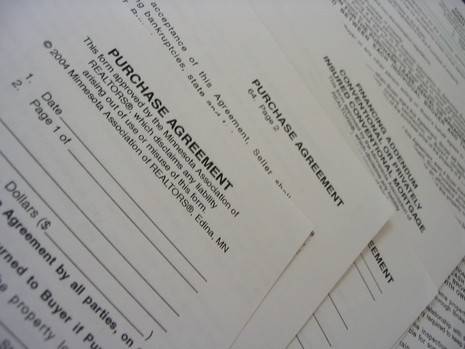
Once upon a time…a handsome young man went to an open house. The real estate salesman, Hank, welcomed the man in.
“It’s a fixer upper,” said Hank of the one hundred and eighty nine thousand dollar property.
“Just what I’m looking for,” said the handsome young man. And indeed, it was just what he was looking for. The home’s exterior was in perfect condition while its interior was uninhabitable. As this would be a fun rehab project, every dollar mattered. Could the handsome young man be able to complete the remodel, pay the real estate commission on the sell side and still make a profit? Maybe, but pennies had to be pinched.
Hank, meanwhile, saw the promising gleam in the young man’s eyes. “Are you working with an agent?” he asked.
“No,” said the young man.
Ho ho ho, thought Hank, a hogger! If he could represent this customer on the buy side as well as his customer on the sell side, he would keep the entire commission, not having it to share with any other realtor.
Of course, the young man was not only handsome but clever too. He knew all about hoggers. “I’d like to make an offer on the house,” he told Hank.
Hank held back a little jig.
“And this is what I’d like to do,” continued the young man. “Assuming the sellers are offering 5 % commission, and your take would be 2.3 % of that, I’ll offer full price less 2 %.”
Hank furrowed his brow. “How’s that a full price offer?” he asked.
“Well,” continued the savvy young man, “you re-write your listing agreement with the sellers, changing the commission to 3%.”
“But then I’ll only make 3 % commission,” said Hank.
“Exactly,” said the young man, “which is more than you would have made if I came here with a realtor.”
“Yes, but…” sputtered Hank.
“And the sellers will make exactly as they would have if I’d have offered 189K.”
Hank grumbled. He ground his teeth.
“Well?” asked the young man, “do we have a deal? Because if we don’t, I can find a real estate agent in about two seconds.”
Hank chewed his lip. If the young man came back with another realtor and made an offer, even a full price one, Hank’s take would only be 2.3. And although the difference might not seem like much .7% is .7%. Hank took a deep breath. “Alright,” he said.
The end…almost.
Think the above story is farfetched? It’s based upon an actual real estate transaction that occurred several years ago—when you could still find fixer-uppers for 189K. First time home buyers, especially those people who hit open houses just to ‘see what’s out there’ are particularly vulnerable to stepping into a hogger situation. The realtor asks if they have representation. If they don’t, they’ll be courted by the listing agent, bent on bogarting the entire commission himself. Or herself.
You might be asking, “But isn’t it a conflict of interest when the same agent represents the seller and buyer?” The answer is, absolutely. Dual agency, as it’s called in the real estate biz, restricts the agent’s capacity to represent each party in the transaction fully as each party has opposing objectives. So conflicting are hoggers, in fact, that they have been prohibited in Colorado, Florida and Kansas.
So why even bother entering into such a partnership? For the same reason the handsome young man did in the story: to save bucks. In this case 3,780 dollars, which buys a lot of drywall. Also, agents might tell you that having one realtor representing both parties makes for quicker negotiations, as there is one less person involved. Even these two factors might not help assuage any trepidations you have entering into such a transaction. If so, part of your savings might be used to retain an attorney that will see you through the process to ease your worries.
“Okay, this is great if you stumble upon the home of your dreams when touring an open house, but what if you’re trying to sell your home?” might be your next question.
The answer: When you fill out your listing agreement with the agent representing you, tell her, or him, to stipulate in the contract that if they personally bring in the buyer (meaning they personally represent the buyer) they will charge less commission. In this case, if they buyer is not as savvy as our handsome young man is, the sellers will actually clear more than originally anticipated because they will pay less in commission. To put it in numbers, say you’re selling your 300K home and the agent writes up a contract for 5% commission (common around here in the Minneapolis/St. Paul metropolitan area) that will come directly out of your profit. If another agent brings in the buyer willing to pay full price, you’ll have to fork over 15K. Ouch. If, however, your agent brings in the buyer and charges only 3% per the agreement in your contract, it means you’ll only have to part with 9K of your hard earned money.
Ultimately, the decision to enter into a dual agency where your agent represents the other party in a transaction is completely up to you and the other party involved–and the laws in your state and the agent’s broker’s policies. If such representation is not prohibited and all parties agree to it, then we in the other 47 states in the union might as well take advantage of dual agency if we can and feel so inclined.
Note: When two different agents from the same brokerage firm represent opposing parties in a transaction, the transaction is also considered a dual agency relationship. However, no agent will agree to take less commission if another agent from their firm brings in a buyer. At least, I haven’t met one.

Double end any real estate sale always comes down to honesty and integrity. Building a name is more important that get quick sales. Too many agents get greedy and don’t consider the long term affects of you client base.